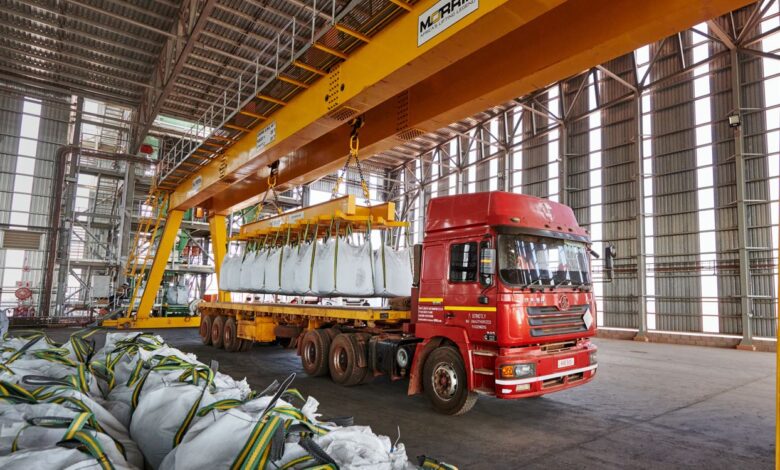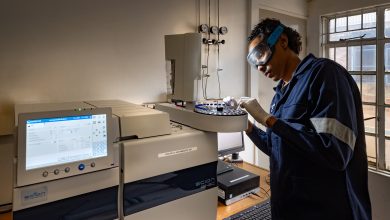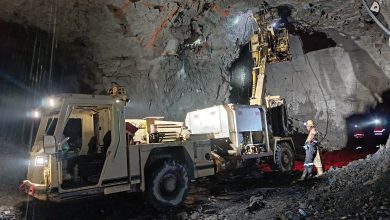
Flexible Intermediate Bulk Containers (FIBCs) for Mining Projects
Flexibility, Durability, and Convenience in One Package
In FIBCs, benefits like lightweight robustness, environmental friendliness, and compliance with safety standards are undeniable. Unsurprisingly, they have become the preferred choice for mining projects across Africa. However, selecting the right supplier presents a selection dilemma. Making an informed choice requires prudence and due diligence.
By Jimmy Swira
A fortnight ago, this writer was at a copper mine in Zambia at the peak of production. Arms crossed, mining managers gleefully watched as haul trucks took turns moving ore. “We have never been this busy in five years,” said the helmeted, burly shift manager, a smile of content written on his face.
No prize for guessing that a similar scenario is playing out at other copper mines elsewhere on the continent – thanks to high demand in critical minerals. Obviously, increasing activities means more need for suitable packaging to facilitate easy storage, handling, and transportation of processed materials.
Flexible Intermediate Bulk Containers (FIBCs)
Among a host of others, Flexible Intermediate Bulk Containers (FIBCs), which are made of polypropylene (PP), are an option that comes in handy. The heavy-duty bulk bags meet the need for affordable, high-quality, versatile packaging solutions. This explains why they are also used extensively in industries such as the food and beverage, personal care, and pharmaceutical industries.
Other flexible packaging options include woven PP bags, net bags, and paper bags. However, in contrast, these have limited usage and are not suitable for heavy-duty applications.
Why Are FIBCs the ‘Real Deal’?
When it comes to preserving ore, there are challenges involved in storage, handling, and transporting ore. The main ones are the properties of the materials, such as chemical content and abrasive nature. So, the packaging has to withstand these and secure invaluable assets.
Manufacturers this publication approached shared information generously about their customer preferences. Unanimously, they mentioned the following as what makes FIBCs the obvious choice (‘the real deal,’ as one supplier put it) by a country mile:
1. Durability
Polypropylene is a chemical-resistant, mould-resistant, and rust-resistant polymer. These properties render it ideal for harsh conditions at mining sites. Due to this material of construction, FIBCs can withstand the abrasive nature of rocks and metals and potential exposure to harsh weather conditions.
2. Lightweight but Robust
Flexible packaging requires less material than rigid containers. However, their lightweight nature belies their robustness. They are designed to hold significantly more weight. For example, a 3 kg bag can handle two metric tonnes of material.
3. Easy Storage and Handling
Due to their adaptability, FIBCs are easily stored in warehouses or open areas as they can be lined, ultraviolet-protected, and water-resistant. Besides, they can be easily handled (loaded and unloaded) by equipment such as forklifts, diggers, trucks, loaders, and forklifts. This ensures the quality of the valuable ore is well preserved.
4. Environmentally Friendly
Bulk packaging is not best known for its green credentials. However, FIBCs are lined and water-resistant, minimising the risk of external environmental impact. In addition, as they require less material than rigid containers, FIBCs leave a small environmental footprint.
5. Safety
In mining operations, compliance with health and safety regulations – in the South African context, the Mine Health and Safety Act (MHSA) and the Occupational Health and Safety Act (OHSA) – is not optional but obligatory. In terms of adherence to safety practices, FIBCs are up to the task.
Generally, FIBCs are a suitable alternative to traditional fragile packaging, which can be a safety hazard to personnel while filling, transporting, and stacking.
In that respect, prudence in procurement processes is the operative word as, in contemporary FIBCs, durability and affordability are not just enough; compliance with Environmental, Social, and Governance (ESG) standards is also crucial.
Selection Dilemma
There are a wide range of FIBC brands out there from suppliers targeting Africa’s mining operations. Isn’t that a pleasant selection dilemma?
In theory, it is, but not when, ostensibly, there are near-identical FIBCs on the market. However, while there may appear to be nothing much separating them, products from manufacturers are unique – at least that’s what manufacturers claim. This complicates informed decision-making.
Prudence and Due Diligence
Hence, the mining manager in Zambia and his colleagues have their work cut out in applying prudence and due diligence as they shop around for suitable FIBCs to meet their respective needs.






